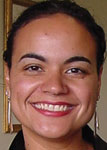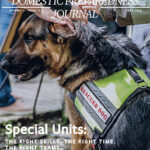Detection, investigation, and monitoring are all crucial elements of a successful public-health response to the natural outbreak of a disease or an intentional act of bioterrorism. Lessons learned in the aftermath of the post-9/11 anthrax attacks provided the genesis for a federal program in this field that was developed by the Centers for Disease Control and Prevention (CDC) – which works with state health departments to help them bolster their own epidemiological capabilities in the areas of public health emergency planning and response.
A milestone in that effort was reached in July 2002 when CDC launched the Career Epidemiology Field Officer (CEFO) program as one way to provide experienced epidemiologists to state, local, and territorial health departments. The individual CEFOs participating in the program are CDC employees who assist state, local, tribal, and territorial health departments in building and sustaining epidemiologic capacity by serving in a variety of functions tailored to the needs of the individual state.
The CEFOs also serve as liaisons between CDC (and other federal agencies) and the host-state health departments. The CEFOs’ knowledge of epidemiology, and of federal preparedness and response requirements, helps strengthen the states’ own preparedness programs and enhance their ability to prepare for and/or respond to potential or real acts of terrorism, natural disasters, pandemics, and other public-health emergencies.
To participate in the program, states may request the assignment of field officers for at least two years – but there is the potential for renewal at the discretion of the state. A state or local health department may request the assignment of a CEFO by e-mailing CEFO@cdc.gov or by calling 770-488-8881. As of early July, there were 27 CEFOs working in 21 states, with an additional four positions awaiting assignment of a CEFO.
Highly Credentialed and Well Trained
A majority of the currently assigned CEFOs have gone through CDC’s Epidemic Intelligence Service (EIS) training, but that training is not required for CEFO assignment. Many of the CEFOs also have years of public-health epidemiology experience, both in the field and in various positions at CDC’s headquarters in Atlanta, Georgia. The CEFO workforce represents a broad spectrum of professions, including clinical medicine (e.g., physicians, veterinarians, health scientists, and nurses). Many CEFOs are scientists who hold doctorates or masters degrees in epidemiology.
CEFO epidemiologic and preparedness duties vary from state to state, but typically include a wide variety of activities such as the following:
- Collaborating in the development of response plans for all-hazards scenarios, including those involving agents of bioterrorism, chemical, nuclear, and/or radiological events, and all types of natural disasters.
- Supporting state efforts in planning for and responding to an outbreak of pandemic influenza.
- Building partnerships for emergency preparedness.
- Developing training and education programs in the fields of epidemiology, preparedness, and emergency response – and/or leading or participating in state and local emergency- response exercises.
- Providing subject-matter expertise and epidemiologic consultation services on state surveillance systems and the investigation and response of epidemiological outbreaks.
Editor’s Notes: (1) Additional articles on the CEFO program, including case studies from the field, are planned for future issues of DomPrep Journal. (2) Valerie Kokor, MBA, CEFO Director; Catherine Chow, MD/MPH, CEFO Supervisor; and Stephanie Ostrowski, DVM/MPVM/DACVPM, CEFO Supervisor assisted Ms. Marrero in the preparation of this article.

Ruth Marrero
Ruth Marrero is an HACU (Hispanic Association of Colleges and Universities) fellow assigned with the Career Epidemiology Field Officer Program (CEFO) program at the U.S. Centers for Disease Control and Prevention (CDC) in Atlanta, Georgia. She attained her BS in Business Management from Norwich University, Vermont, and is studying for a Master’s in Public Health Education at California State University Northridge, California. Her focus of study has been in Epidemiology, and she is enrolled in an Emergency Management certificate program. She is a per-diem Health and Safety Services instructor and a volunteer Disaster Action Team (DAT) member with the American Red Cross of Ventura County, California. She also has completed CERT (Community Emergency Response Team) training and has been a CERT volunteer at many events.
- Ruth Marrerohttps://www.domesticpreparedness.com/author/ruth-marrero






